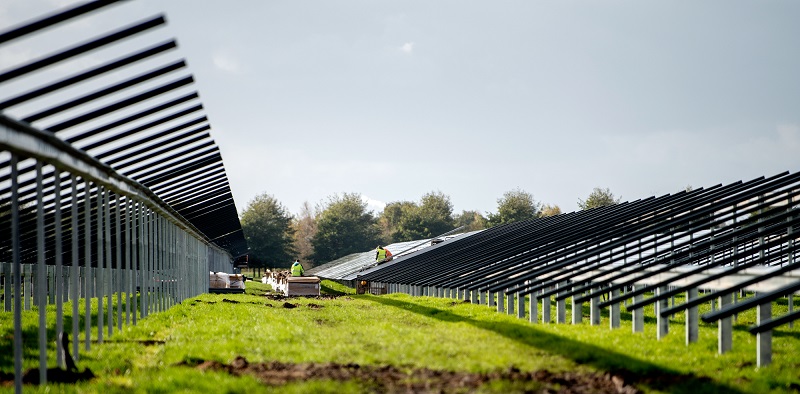The Netherlands Enterprise Agency, Rijksdienst voor Ondernemend Nederland – RVO has started accepting draft projects proposals for solar and renewable energy power plants exceeding 15 kW in size in the frame of the SDE+ program from February 20, 2018.
The first round of the 2018 SDE program, the so-called “Spring round” has three separate windows for submitting project proposals, which will be opened on March 13, 19 and 26, respectively.
PV projects over 1 MW may be submitted in the second window and will have a maximum tariff of €0.0107/kWh, while PV project proposals ranging in size from 15 kW to 1 MW will have to go through the third window, and will have a maximum price of €0.112/kWh. The maximum number of full load hours for both project types will be 950.
The RVO has allocated €6 billion in incentives for this year’s first round of the program. The second round, the so-called “autumn round”, will be held in October.
Projects that will not be developed on rooftop surfaces or façades will have to obtain an environmental authorization prior to application for subsidies under the SDE+ program. Furthermore, developers of all solar projects above 500 kW are requested to conduct a feasibility study.
Popular content
In this year's rounds, a distinction will be made between the electricity injected into the network and self-consumed power on the basis of the guarantees of origins released by CertiQ, the country’s entity that certifies renewable energy. The Dutch government claims that this will benefit those PV plant owners with a high rate of self-consumption, because they will avoide the payment of grid and systems costs.
As for the power fed into the grid, the SDE+ will compensate for the difference between the cost price of renewable energy and the market value of the energy supplied. Subsidies are allocated for periods of eight, 12 or 15 years, depending on the maximum number of full load hours for each technology.
Although the program is in theory open to projects over 15 kW, the majority of the PV projects selected in the program’s previous rounds come from installations several MWs in size. For this reason, the Dutch government announced last month it is considering changing the scheme, in order to allow more commercial PV projects to be developed.
This content is protected by copyright and may not be reused. If you want to cooperate with us and would like to reuse some of our content, please contact: editors@pv-magazine.com.



2 comments
By submitting this form you agree to pv magazine using your data for the purposes of publishing your comment.
Your personal data will only be disclosed or otherwise transmitted to third parties for the purposes of spam filtering or if this is necessary for technical maintenance of the website. Any other transfer to third parties will not take place unless this is justified on the basis of applicable data protection regulations or if pv magazine is legally obliged to do so.
You may revoke this consent at any time with effect for the future, in which case your personal data will be deleted immediately. Otherwise, your data will be deleted if pv magazine has processed your request or the purpose of data storage is fulfilled.
Further information on data privacy can be found in our Data Protection Policy.